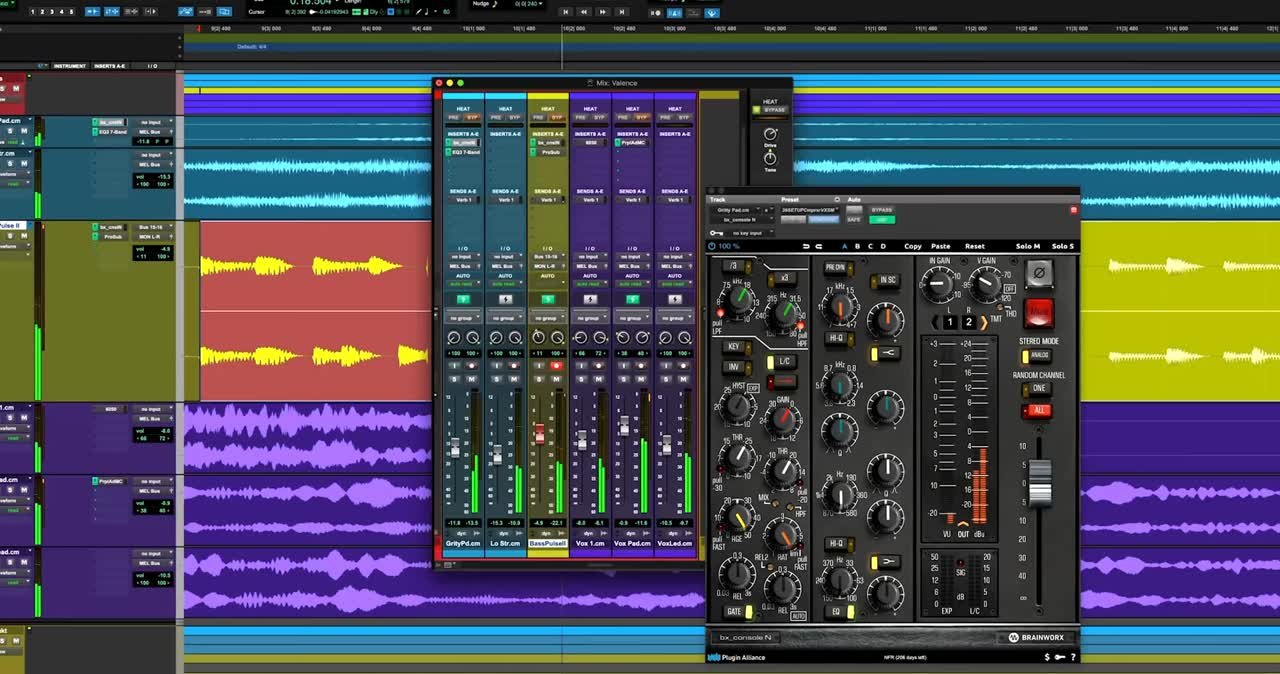Audio Suite Pro Tools Seminar at ALBA
The audio production industry is continuously evolving, and with it comes a demand for professionals who are not only creative but also technically skilled in using advanced digital tools. One such tool that dominates both the music and film industries is Avid Pro Tools—a digital audio workstation (DAW) widely regarded as the industry standard for recording, editing, mixing, and mastering audio.
To empower the next generation of sound engineers and producers, the Academy of Lebanon for Fine Arts (ALBA) recently organized a specialized seminar dedicated to Pro Tools’ Audio Suite. This event offered students, professionals, and audio enthusiasts the opportunity to deepen their knowledge, practice hands-on techniques, and understand how Audio Suite processing can elevate their production workflows.
What Is Pro Tools and Why Is It Important?
Before diving into the seminar highlights, it’s important to understand why Pro Tools holds such significance in the audio industry.
- Pro Tools as an Industry Standard: From major Hollywood productions to Grammy-winning albums, Pro Tools is the software of choice in recording studios, broadcast houses, and post-production facilities around the globe. Its precision, reliability, and compatibility make it indispensable.
- Versatility: Pro Tools is not just for music—it is equally powerful for dialogue editing, sound design, foley, and mixing for film and television.
- Professional Ecosystem: With advanced features like HDX hardware acceleration, Dolby Atmos integration, and seamless collaboration tools, Pro Tools supports projects of any scale.
Among its many features, the Audio Suite stands out for its ability to deliver offline audio processing, offering flexibility and efficiency in ways that real-time plugins sometimes cannot.
Understanding the Audio Suite in Pro Tools
The Audio Suite is a suite of processors in Pro Tools that allows users to apply effects directly to audio clips rather than running them in real time. Unlike inserts, which remain active throughout playback and consume CPU power, Audio Suite processing renders the effect permanently (though you can always undo or work on a duplicate).
Key Advantages of Audio Suite:
- Efficiency – Saves processing power by rendering effects offline.
- Flexibility – Ideal for batch processing or making permanent edits.
- Creative Power – Opens up possibilities for unique sound design.
- Precision – Useful for fixing issues in isolated clips, like noise or clicks.
This makes Audio Suite an essential tool in professional audio workflows—especially in environments where large sessions can overload system resources.
The Significance of the Seminar at ALBA
ALBA, known for its dedication to arts, design, and technology education, recognized the growing demand for audio professionals who are comfortable with modern DAWs. By hosting the Audio Suite Pro Tools Seminar, the academy aimed to:
- Expose students to industry-standard tools.
- Bridge the gap between classroom theory and real-world application.
- Equip learners with advanced skills in audio editing and processing.
- Encourage innovation and creativity in sound design.
The seminar also reflected ALBA’s broader mission to remain at the forefront of media and arts education in Lebanon and the Middle East.
Highlights of the Audio Suite Pro Tools Seminar
The seminar was designed as both a knowledge-sharing platform and a practical workshop. Below are the key highlights:
1. Introduction to Pro Tools and Audio Suite
The event began with an overview of Pro Tools’ history, evolution, and industry impact. Instructors emphasized the distinction between real-time inserts and offline Audio Suite processing, showing when each is more effective.
2. Hands-On Training Sessions
Participants worked directly in Pro Tools sessions to understand how Audio Suite operates. Some of the exercises included:
- Cleaning noisy dialogue tracks with Noise Reduction.
- Applying EQ adjustments to specific clips.
- Using compression to tame dynamics in isolated vocals.
- Correcting pitch with Pitch Shift and Elastic Audio tools.
- Adding creative effects like reverse reverb or stutter edits.
This hands-on approach allowed attendees to experiment freely while receiving expert guidance.
3. Workflow Optimization Techniques
One of the major topics was workflow efficiency. Audio Suite is especially powerful for large sessions where real-time plugins can overload the CPU. Attendees learned how to:
- Render effects offline to free up processing power.
- Save alternate versions of clips for future revisions.
- Combine Audio Suite with automation for advanced results.
4. Professional Case Studies
Industry professionals were invited to present real-world case studies, highlighting how Audio Suite is used in:
- Film post-production (dialogue editing, ADR, Foley).
- Music mixing (layering vocals, tightening drums, creative sound design).
- Broadcast and radio production (fast, efficient editing under tight deadlines).
5. Open Discussion and Q&A
The seminar ended with a Q&A session, where participants asked about specific scenarios they face in their projects. Questions ranged from “When should I choose Audio Suite over inserts?” to “How do I maintain flexibility with destructive processing?”
Benefits for Students and Professionals
The seminar offered both immediate and long-term benefits:
- Technical Mastery: Participants walked away with a solid understanding of Audio Suite tools.
- Practical Skills: Real-world practice improved confidence in handling professional sessions.
- Creative Inspiration: Many students explored new ways to use Audio Suite for sound design.
- Career Readiness: Exposure to Pro Tools prepares students for internships and jobs in studios, film houses, and media companies.
- Networking: The event allowed students to connect with professionals and like-minded peers.
The Role of Audio Suite in Modern Audio Production
The seminar also emphasized how Audio Suite is shaping the future of sound. In today’s landscape, audio projects are bigger and more complex than ever—Dolby Atmos mixes, streaming media demands, and high-definition sound design are now standard.
Audio Suite contributes to modern workflows by:
- Making it possible to process large sessions without crashing systems.
- Offering non-traditional effects that can inspire creativity.
- Speeding up processes for projects with tight delivery schedules.
ALBA’s Commitment to Audio Education
This seminar is part of ALBA’s larger initiative to invest in media arts education. With industries like film, television, gaming, and music rapidly expanding in the Middle East, there’s a growing need for sound engineers who are not only artistic but also technically skilled.
By integrating Pro Tools seminars and workshops into its curriculum, ALBA ensures that its students are prepared for the professional world, both locally and internationally.
Key Takeaways from the Audio Suite Pro Tools Seminar at ALBA
- Pro Tools remains the gold standard in audio production.
- Audio Suite processing is a must-know skill for professionals handling large sessions or detailed audio editing.
- Hands-on learning bridges the gap between theory and practice.
- Efficiency and creativity go hand in hand when mastering tools like Audio Suite.
- ALBA continues to play a vital role in training the next generation of audio professionals.
Final Thoughts
The Audio Suite Pro Tools Seminar at ALBA was more than just an educational session—it was a transformative experience for everyone who attended. By focusing on one of Pro Tools’ most powerful yet underutilized features, the seminar provided participants with tools and knowledge that will serve them in real-world audio production.
In an era where sound is as important as visuals, the ability to work confidently with Pro Tools and its Audio Suite sets professionals apart. Thanks to ALBA’s initiative, students and aspiring sound engineers are better equipped to create, innovate, and contribute to the future of audio.
Whether working on a blockbuster film, producing chart-topping music, or editing a podcast, mastering Audio Suite is a skill that pays off—and ALBA has taken a crucial step in ensuring that skill is accessible to the next generation.






